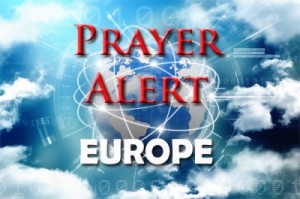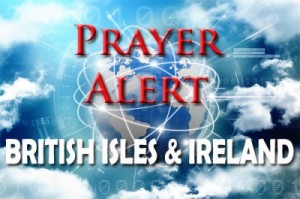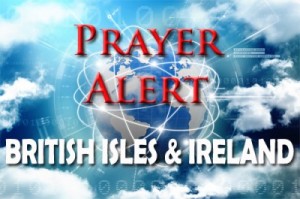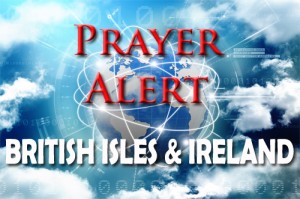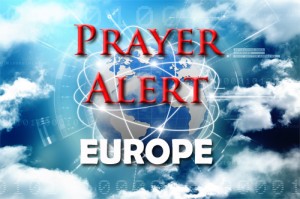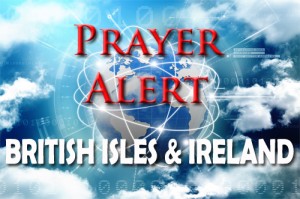Displaying items by tag: Politics
Iran 2: persecuted but not forsaken
Please stand in solidarity and prayer for Christians imprisoned in Iran on false political charges because of their faith. These include: Maryam - house church member, in Evin since July 2013, serving a four-year sentence. Ebrahim - house church member, in Evin since August 2013, serving a one-year sentence, followed by two years’ exile to a border town. In March 2015 he was given a further five years' imprisonment. Behnam - house church leader, in Ghezel Hesar prison since May 2011, serving a six-year sentence. In 2014 he was given a further six years. Vruir - an ordained pastor, currently under house arrest for 3-5 years. Three of his congregation are believed to be in prison. Shahin - given 2.5 years’ sentence in July 2013. Released in December 2013 and then taken to serve his sentence in April 2014. Mohammad was imprisoned on 5 July 2014 for a six-year sentence. Massoud began his five-year sentence on 9 November 2014.
Europe: control of fishing rights
On 20 March environment secretary Michael Gove told Tory MPs to 'keep their eyes on the prize' in the row over Brexit and fishing waters after the latest Europe Brexit meetings. Theresa May’s agreement to keep EU fishing policies during the transition period meant the UK had not got what it wanted from the negotiations. Control of fishing waters has been delayed. The next day protesters threw dead fish into the Thames outside Parliament, in solidarity with the fishing communities who expected to control UK waters the day it leaves the EU. The demonstrations were called environmental vandalism. Jacob Rees-Mogg said the proposal for Britain to remain in the EU's Common Fisheries Policy for almost two years after March 2019, with no say over the allocation of quotas, would not command the support of the Commons, adding he was not pleased with the transition deal but he could live with it. See http://www.bbc.co.uk/news/uk-politics-43484031
Nazanin Radcliffe’s internment
23 March is day 720 of Nazanin Zaghari-Radcliffe’s confinement in Evin prison, nicknamed ‘The Iranian torture factory’. In September she was approved for early release, but Boris Johnson’s comments caused Iranian authorities to believe she was a spy and new charges were made. Her situation became political news, generating a petition of 1.5+ million signatures for her release. Mr Johnson visited Iran ‘to leave no stone unturned’, but an Ayatollah’s fiery Friday sermon described him as a ‘liar and clown’, leading to demonstrations across Iran and the UK. Inside the prison phone calls to and from Nazanin by family were banned and medical visits were cancelled. Just before Christmas, she was told she was ‘eligible for parole.’, but this came to nothing. Nazanin is a Christian suffering post-traumatic stress, being cruelly treated physically and emotionally; pray for her spirit to be strong. See also the article ‘Under Islamism’ in the World section.
INSIGHT: Russian corruption backstory
In the current climate of Russian conspiracy theories, press conference threats, diplomatic expulsions from countries, with tit for tat accusations and sarcasm between countries, it is difficult to know how to pray or who to pray for, when there are so many people behind the scenes holding very influential positions both at home and abroad. With this in mind, Prayer-Alert has produced an INSIGHT article giving intercessors a backstory that contains the historical roots of corruption in Russia, the names and spheres of authority of administrative individuals in Russia, and Government agencies in the United Kingdom that we can be praying for, with information based on facts not fake news. To read the article please press the ‘More’ button.
Guatemala: prayer prompts embassy move
President Morales has announced that the Guatemalan embassy will be moved to Jerusalem in May, just two days after the United States. The president, an outspoken Christian Evangelical, has been publicly supportive of Israel since the beginning of his mandate. After receiving an award recently he said, ‘From the bottom of my heart, I tell you, I don’t feel I deserve this. I’m just trying to do the right thing and allow my God, my people, and history to judge me.’ Vice president Jafeth Cabrera said his country is fulfilling biblical prophecy: ‘Yes, we do share the idea that prophecy is coming to pass. We are pleased that Guatemala is contributing to having that happen, and we hope it will soon be a reality.’ The vice president also said the decision could not have happened without prayer.
Royal visit to Israel
Prince William’s visit to Israel will be an historic and extremely important event for the UK, as he will be the first member of the British royal family to visit Israel in an official capacity. It will take place this summer as Israel celebrates 70 years since independence and as America recognises Jerusalem as Israel’s capital. The royal visit signals a significant change of policy at the Foreign Office (which advises about official visits). The Queen has visited 129 different countries, including many of Israel’s neighbours, but never Israel. This royal visit is seen as Britain’s most significant action regarding Israel since Balfour. In the past a few royals have visited Israel, but only on a private basis, never officially.
Europe: Golden Visa dealers
Unscrupulous business people with close ties to government in countries with higher than average levels of corruption can make huge amounts of money from lucrative public contracts (awarded in processes that aren't exactly competitive). They don’t come under much pressure from activists or NGOs because corrupt politician friends ‘keep them in check’. These ‘business people’ choose to travel and live elsewhere. Many choose Europe. They do not approach their embassy for a Schengen visa. With enough cash, an array of European ‘Golden Visas’ - residence permits or passports - are at their fingertips. There has been a high demand for such documents in the past few years. The Golden Visa market has turned into a multi-billion-euro global phenomenon with price tags varying from country to country - anything from €250,000 to €10 million. Coast or mountains? Real estate or business investment? Recoup your money in five years? Background check? No problem.
North Korea: history with US presidents
No US president has ever met a North Korean leader. Madeleine Albright visited North Korea’s Kim Jong Il, but Bill Clinton was unwilling to go unless it was clear what such a meeting could achieve. A meeting with a US president is valuable to the North Koreans, but America has always declined an official visit unless a deal that will deliver a significant return is on the table. President Bush engaged North Korea in the six-party talks (two Koreas, Japan, US, Russia and China), thus avoiding Pyongyang incitements to secure its goal of direct talks. Barack Obama came to power vowing to talk directly to America's enemies, but concluded it was wrong to pander to North Korea's provocations. Trump’s potential visit (or meeting elsewhere) has given North Korea’s dynasty the prestige and propaganda that it craves, and is consistent with Trump's vow to be a disruptive global force, able to unpick one of the world's most intractable conflicts.
Church leaders ask Israel not to tax church properties
Further to last week’s article in the World section about Jerusalem's Holy Sepulchre being closed, this week Archbishop Justin Welby and Cardinal Vincent Nichols called on the Israeli government to protect Jerusalem’s holy sites. A joint letter to the Israeli ambassador expressed their ‘deep concern at the discriminatory taxation of churches in Jerusalem’. Their letter said that the proposed taxes might seriously damage the Christian presence in Jerusalem, Christian families, and the Christian institutions, including hospitals and schools, which serve many of the poorest people, regardless of their background. Their letter continues, ‘These violations of historic agreements risk undermining prospects for peaceful coexistence between communities, at a time of already heightened tensions.’
North Korea: breakthrough?
North Korean leader Kim Jong-un and US president Donald Trump are to meet in person by May, it has been announced, an extraordinary overture after months of mutual hostility. This news came after South Korean officials had held talks with Mr Trump at the White House. They passed a verbal message from Mr Kim, saying the North Korean leader was ‘committed to denuclearisation’. Mr Trump hailed ‘great progress’ but said sanctions would remain in place. South Korea's President Moon Jae-in said the news was like a miracle. ‘If President Trump and Chairman Kim meet following an inter-Korean summit, complete denuclearisation of the Korean peninsula will be put on the right track in earnest’, he said. China welcomed the development, saying the Korean peninsula issue was ‘heading in the right direction’. However, correspondents say the North has halted missile and nuclear tests during previous talks, only to resume them when it felt it was not getting what it demanded. The dramatic announcement came days after a high-ranking South Korean delegation had met Mr Kim in Pyongyang. See

